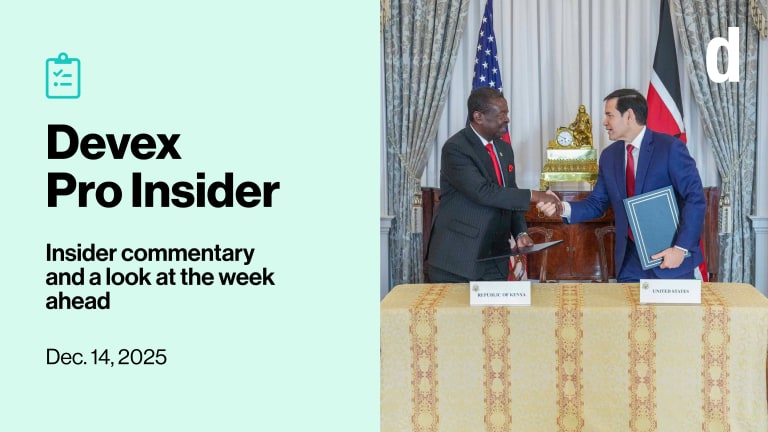
EDITOR’S NOTE: GOP presidential hopefuls have been attacking the Obama administration’s foreign policy directions, but what do Americans really want? Turns out, most want the same thing citizens in other countries do: “a United States that neither dominates nor retreats, embedded in a world of law and multilateral institutions.” Stewart Patrick discusses the results of a Council on Foreign Relations and Worldpublicopinion.org poll in this article.
As the nation heads into an election year, it’s worth asking what role the electorate wants the United States to play around the world.
The answer, it turns out, is clear. According to a comprehensive digest of polling data compiled by the Council on Foreign Relations and Worldpublicopinion.org, Americans want the United States to play a less dominant but still active role in world affairs—one grounded in international law and support for the United Nations. In expressing these views, U.S. citizens have much in common with their counterparts abroad.
As the primary season heats up, leading GOP presidential hopefuls have attacked the Obama administration’s foreign policy on multiple fronts. They’ve criticized President Obama for timidity and fecklessness, whether in “leading from behind” over Libya or showing undue deference to the United Nations and other multilateral organizations. Egged on by neoconservative advisors, candidates Mitt Romney, Newt Gingrich and Rick Perry have each embraced the politics of American primacy, exceptionalism, and nationalism—with, in Romney’s words, “no apology.” Gingrich, the current frontrunner, has gone one step further, promising to appoint John Bolton, America’s premier UN critic, as his secretary of state.
To be sure, the tea party has injected a competing current of isolationism into Republican presidential debates—epitomized in the retrenchment rhetoric of libertarian Ron Paul. Indeed, conventional wisdom suggests that Americans are in an isolationist mood, exhausted by more than a decade of war in Afghanistan and Iraq.
In reality, the American public rejects both the pursuit of primacy and withdrawal from the world. In a 2010 Chicago Council on Global Affairs (CCGA) poll, just 8 percent of respondents favored the United States being the preeminent world leader. Less than a fifth (19 percent) advocated U.S. disengagement. By contrast, an overwhelming 71 percent took a cooperative approach, believing that “the United States should do its share in efforts to solve international problems with other countries.” A more recent 2011 Gallup poll essentially confirmed these results, with only 16 percent of respondents wanting the United States to take “the leading role.” Overall, 32 percent believed the country should take either a “minor role” (25 percent) or “no role” (7 percent). The most popular option—supported by half of Americans—was for the United States to “take a major role, but not the leading role.” Such an attitude should bring comfort to the White House, whose National Security Strategy—and overall foreign policy—emphasizes a new era of collective responsibility, in which other major countries shoulder their fair share of global burdens.
Doing less unilaterally implies doing more with others, of course. And the U.S. public has a strong bias towards multilateralism. Americans believe in a world order supported by international law and treaties. They believe that international law creates obligations similar to domestic law, and that countries should abide by international rules even when they run counter to the national interest. Indeed, American support for this principle is among the strongest internationally, at 69 percent (not far behind China’s 75 percent).
Americans also express strong support for a variety international treaties, often by overwhelming margins. These include the Comprehensive Test Ban Treaty (82 percent), a proposed inspection protocol to the Biological Weapons Convention (89 percent), the Rome Statute of the International Criminal Court (70 percent), and a new treaty to combat climate change (67 percent, down from 76 percent in 2008). In taking these stances, U.S. citizens proved to be much more forward leaning than their leaders to date. A majority of Americans also backs an international body to judge compliance with treaties to which the United States is a party—a proposal that is the bete noire of “new sovereigntists.”
Perhaps most surprising, given the resurgence of UN-bashing on Capitol Hill, is the impressive support U.S. citizens give to the world body. Americans recognize the UN’s important role in conferring legitimacy on the use of force (although they are divided on the question of whether it is always necessary). They believe the UN should intervene militarily to protect people from severe human rights abuses or when a government blocks the delivery of vital humanitarian aid. Majorities of Americans endorse strengthening the United Nations in a variety of ways. These include establishing an international marshals service to arrest leaders responsible for genocide (73 percent), establishing a “UN agency to control access to all nuclear fuel in the world and ensure that none is used for weapons production” (64 percent), and granting the UN the authority and capacity to regulate the international arms trade (55 percent). (Americans are more skeptical of giving the UN the right to levy international taxes—something only 44 percent endorse.)
For all the talk of American exceptionalism, global polling suggests that Americans have more in common with citizens of other countries than conventional wisdom—or Republican presidential candidates—would suggest. Like Americans, publics around the world want a United States that neither dominates nor retreats, embedded in a world of law and multilateral institutions.
Republished with permission from the Council on Foreign Relations. View original article.








